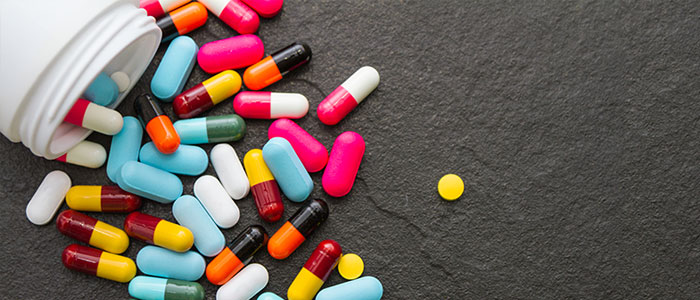In recent times, the advanced use of artificial intelligence has been used to modify drugs for curing diabetes to treat anxiety and depression along with heart ailments while Botox injections can be used to cure eye diseases and wrinkle problems
The world of medicines is evolving faster than we can imagine and the Covid-19 pandemic is only going to further accentuate it. The need for highly effective medicines and vaccines in a short amount of time has been felt never before as it did during the course of the pandemic. Mankind is lucky that prior research on SARS has helped scientists substantially to develop a Covid vaccine in a course of several months.
The year 2020 was one hell of a year and we all would agree that if have to be saved from such pandemics in the future we need to get more rigorous research pertaining to pathogens and viruses leading to the development of various types of medicine with maximum efficacy and minimum side-effects. In recent years, artificial intelligence has come to the rescue of various researches going across the world and has only boosted the cause of developing multi-usage medicines for different diseases.
Botox injections, for example, are now have been repurposed to treat crossed eye disease along with providing migraine treatment and for surgeries pertaining to wrinkles removal. Such modification of drugs and medicines to make them suitable for treating different diseases requires time-consuming and expensive clinical trials.
Ohio State University has already defined a framework that deals with critical patient-related data along with high-powered computerised statistics in order to repurpose a drug while estimating the desired outcomes. The study conducted by the scientists was specifically performed on the drugs to be used during heart ailments but the consistent repurpose of the drug has led to possibilities for the research framework to be applied to most of the diseases.
In recent times, drug repurposing has been one of the most efficient techniques for making drugs work on multiple ailments while alleviating the risk associated with the efficacy and trial procedures of new medicine. Contrary to this major benefit, randomised clinical trials of such drugs may lead to unusual anomalies during its trial phase as compared to trials done on human beings based on various crucial factors of age, gender, sex, ethnicity, etc. This may prove to be a chink in the armor of these repurposed drugs as their real-time severity and efficacy based on bodily reactions might not be immediately known.
Researchers and scientists have till now propounded that given the number of variegated modifications of drugs is concerned, it is practically impossible for humans to go for a real-world trial procedure. That’s why synchrony based on patients’ dataset and that of the drugs administered during illnesses have been established under a framework that is quite effectively used for trial procedures of re-purposed medicines.
Moreover, the research team has suggested that they did enroll 1.2 million heart-disease patients providing the vital information regarding their own ailments which were then fed to the algorithm of the framework and further included the details of medications and drugs they took over the course of the procedure after getting inoculated by the drug or a placebo.
Thereafter, the entailment of causal inference theory, six different drugs were considered for re-purpose. Other than that, the research also threw the results pertaining to drugs used to cure diabetes can also be utilised in curing depression and anxiety while lowering the risk of heart failure and stroke.

